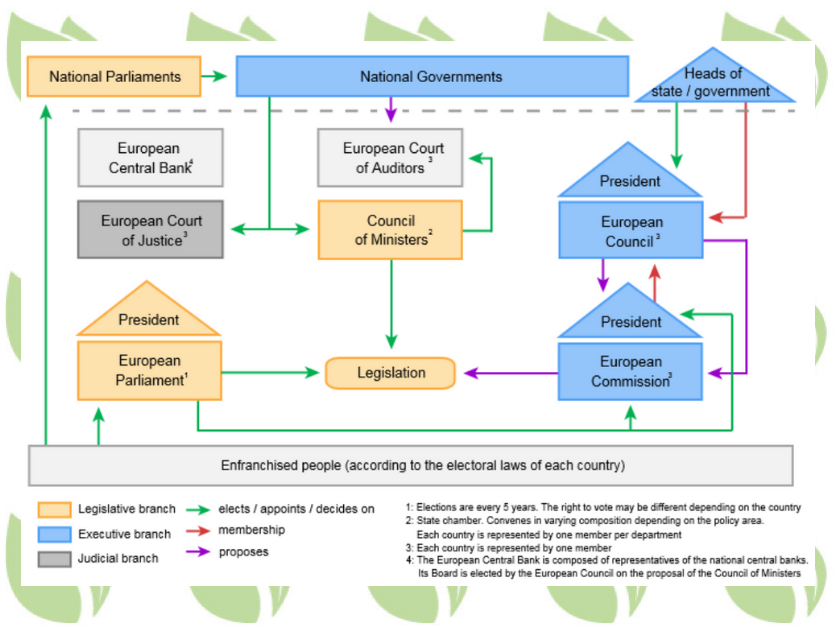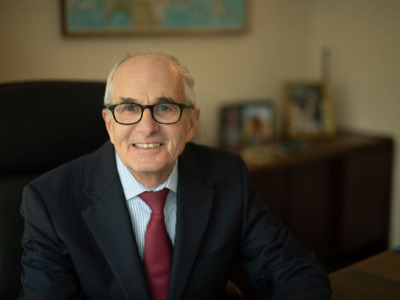The European Union Court of Justice’s (ECJ) recent decision that new gene-editing techniques must go through the same lengthy approval process as traditional transgenic genetically modified (GM) plants has sent shock waves around the world and its greatest impact will be on those who are hungry and food insecure.
The decision will have a direct impact on European biotech companies trying to compete in a global market. According to Sarah Schmidt of the Heinrich Heine University of Düsseldorf in Germany, the ruling is “the death blow for plant biotech in Europe.” It will force gene-edited plants to go through a regulatory process that typically costs about $35 million, she said, meaning only large companies will be able to foot the bill, effectively pricing out universities, nonprofits, and small companies.
The impact of the ECJ decision on global food security is less obvious but very real. The EU decision will make it much more difficult to reach the UN’s goal of cutting world hunger. With a global population expected to exceed 9 billion people, there must be a global commitment to sound agriculture science. The EU accepts science when it comes to medicine, transportation and communication, but rejects science in favor of personal beliefs when it comes to agriculture.
Dr. Joe DeVries is the expert on Africa’s seed systems at the Alliance for a Green Revolution in Africa (AGRA), based in Kenya. According to Dr. DeVries, “The EU decision could have far reaching implications for food security in Africa, due to the tendency of the EU’s policies on crop genetics to reach through to Africa.”
Newer seed technology, including CRISPR, is being used to modify genes in cassava to increase its resistance to brown streak virus disease. No genes from a different source are being added to the cassava, the scientists are just making small changes in the cassava’s own genes. Scientists are also using the same technology on sweet potatoes.
In January of 2018, Michel Bobek, an advisor to the ECJ, recommended that gene-edited crops should not face the same stiff regulations as GMOs—as long as they don’t contain foreign DNA. But the ECJ, a political body (not a scientific body) ignored Mr. Bobek and ruled that gene-edited crops should face restrictions applied to GMOs.
The decision is being questioned by scientists around the world. The authors of a recent Nature commentary, all with extensive knowledge of gene-editing, say: “This decision not only ignores the science of agricultural improvement but almost certainly will impede developments that would enhance the sustainability of agriculture and world food security.”
“To classify gene-edited crops as GMOs and equivalent to transgenic crops is completely incorrect by any scientific definition,” said Nick Talbot, a molecular geneticist at the University of Exeter in the United Kingdom. This is because gene-edited crops have genetic changes indistinguishable from those that occur both spontaneously in nature and as a result of treatment with radiation and mutagenic chemicals, widely used in plant breeding for a century – with no regulation.
“This is going to impact plant breeding in Europe hugely and negatively,” predicted Cathie Martin, a group leader at the John Innes Centre in Norwich, U.K.
The Honorable George Eustice speaking on behalf of the UK Department of Environment, Food and Rural Affairs, said "We disagree with the judgement the ECJ has come up with. We think gene editing and cisgenesis is largely an extension of conventional breeding techniques, the likes of which we have had for decades." He signaled that the UK would not follow the EU decision.
Israel has made the desert bloom by following the best possible agricultural science and leading the way in several vital areas, like drip irrigation. “In Israel there was a clear decision that the use of genome editing is not considered GMO” said Prof. Itamar Glazer, Director of Research and Development at Volcani International.
Scientists at the 2018 International Plant Molecular Biology meeting in France called for an immediate review of the ruling on plant genome editing. The European Academies Science Advisory Council described it as a “setback for cutting-edge science and innovation in the EU”. From their perspective, this sort of research and development is key for global food and nutritional security. They noted that developing countries stood to benefit from the development of new seeds. The US has criticized the EU decision and made it clear the we would not follow suit. USDA Secretary Sonny Perdue noted recently in the Wall Street Journal “we’ve got a hungry world out there” and “(T)he new CRISPR non-transgenic gene editing is amazing technology.” The Secretary continued “I think the European court made a mistake when they ruled that non-transgenic gene editing to be genetically modified” and therefore subject to the full GMO regulatory requirements.
Africa exported $16 billion in agriculture food to the EU in 2017 making the EU Africa’s largest single trading partner. The decision means that African farmers hoping to sell to European markets might not be able to take advantage of gene-editing improvements. Hon. Dr. Elioda Tumwesigye, Uganda’s Minister of Science, Technology and Innovations is looking at biotechnology as a source of economic growth. The minister even said that the bio-economy has greater potential for Uganda than oil. The new CRISPR breeding techniques are a part of biotechnology.
A few years ago Cardinal Peter K. A. Turkson, President of Pontifical Council for Justice and Peace addressed the subject of biotechnology at the World Food Prize in Iowa. Cardinal Turkson, who is from Ghana, quoted Pope John Paul II as telling the UN Food and Agriculture Organization “The findings of science must be put to use in order to ensure high productivity of land.” Cardinal Turkson noted “The urgency of world hunger and food insecurity certainly cries out for…a conversation and a dialogue” on biotechnology and GMOs.
The EU Parliament needs to follow the advice of Cardinal Turkson and initiate an honest conversation with an open mind on the newer mutagenesis seed technology. The EU Court of Justice can’t be the last word on this subject. The EU must follow sound science for the world to be able to feed itself. If that requires a change in the EU statutes to exempt CRISPR and other such technologies from the GMO regulatory requirements, then so be it. The scientific community is doing its best to keep the Malthusian theory at bay. It is time for the EU Parliament, Council and Commission to step up and do their part.
Marshall Matz specializes in agriculture at OFW Law in Washington, D.C. He has had a special focus on global food security for over forty years. mmatz@ofwlaw.com
Nature commentary: https://www.nature.com/articles/nbt.4252


